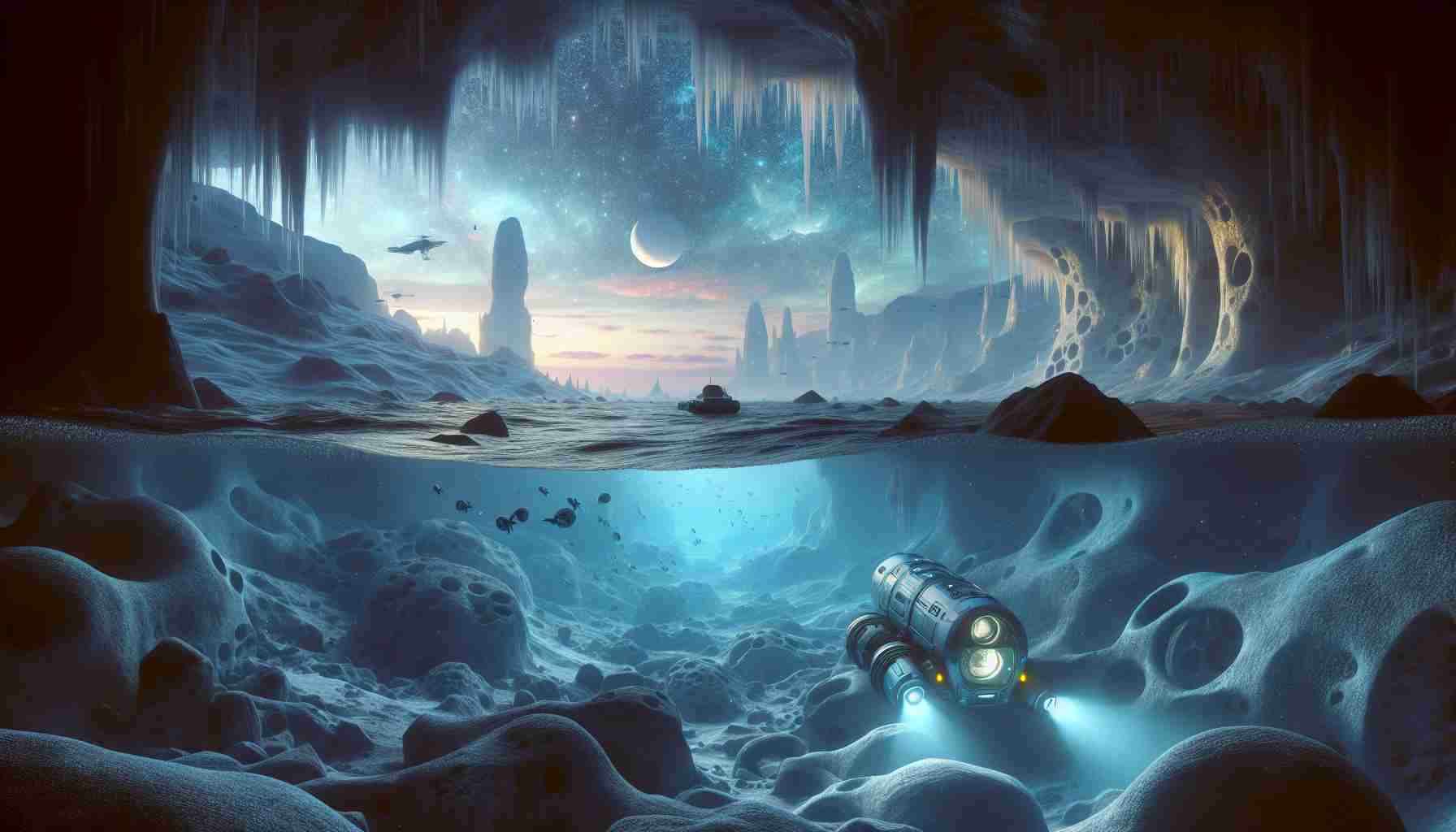Recent studies indicate that Europa, one of Jupiter’s intriguing moons, harbors a vast ocean beneath its icy surface, possibly containing more water than all of Earth’s seas combined. This ocean lies beneath an exterior shell, which is continuously affected by the immense gravitational pull of Jupiter, causing the moon to experience flexing and heating. These tidal forces may create conditions conducive to hydrothermal systems, similar to those found on Earth.
This unique combination of liquid water and a rocky substrate is reminiscent of Earth’s geological structure, facilitating a multitude of chemical interactions. These interactions may play a crucial role in driving diverse ecosystems, potentially allowing for life to exist beneath the moon’s frigid surface. Scientists are particularly fascinated by the prospect of finding simple, single-celled organisms in such hidden habitats, akin to what thrives near Earth’s ocean floor hydrothermal vents.
However, missions like the Europa Clipper face challenges in directly accessing these underwater environments. Instead of drilling into the ice, researchers aim to gather surface data to infer the ocean’s characteristics and search for organic compounds that may indicate bioactivity. Though direct evidence of life remains elusive, scientists believe that the moon’s subsurface ocean might indeed offer a suitable environment for life to flourish, shielded from Jupiter’s intense radiation above. Explorations into this enigmatic moon will lay the groundwork for understanding potential extraterrestrial ecosystems.
Exploring the Mysteries of Europa’s Hidden Ocean
Europa, one of Jupiter’s most captivating moons, continues to be a focal point for astrobiological research. Beneath its smooth, icy exterior lies a hidden ocean that could profoundly reshape our understanding of where life could exist beyond Earth. Recent mission proposals and theoretical studies have revealed deeper mysteries and critical factors surrounding this intriguing celestial body, outlining both its significance and the challenges faced in exploring it.
Key Questions About Europa’s Ocean
1. What is the composition of Europa’s ocean?
Researchers are investigating whether Europa’s ocean contains essential chemical compounds, like calcium, magnesium, and potentially sulfur, which could contribute to a rich chemical environment similar to that of Earth’s oceans.
2. How thick is the ice shell covering the ocean?
Understanding the thickness of the ice shell is crucial for determining how easily future missions could penetrate it. Current estimates suggest it may vary between 10 to 30 kilometers deep, presenting both a barrier and a protective layer for any potential life forms underneath.
3. What are the geothermal conditions of Europa’s ocean?
Analyzing the thermal state of the ocean can provide insight into whether it has enough energy to support biological processes. The possibility of active hydrothermal systems, akin to those seen on Earth, raises significant questions about nutrient cycling in Europa’s environment.
Challenges and Controversies
There are several key challenges associated with exploring Europa’s ocean. Firstly, the technology required for missions that would penetrate the ice is still in development. Instruments must be resilient to the severe radiation and extreme temperatures of outer space, making the engineering complex and costly.
Secondly, there is ongoing debate about the best methods to study the ocean. While missions like the Europa Clipper focus on non-invasive surface exploration, some scientists argue that more aggressive measures, such as landers designed for ice penetration, could yield more direct and valuable data.
Advantages and Disadvantages of Exploration
Advantages:
– Unlocking the secrets of Europa could significantly enhance our understanding of life’s origins and viability beyond Earth.
– Discovering life, even at a microbial level, would fundamentally change humanity’s perspective on the uniqueness of Earth and could inform astrobiological theories.
Disadvantages:
– The high costs of space missions—combined with the inherent risks of exploring such a remote and hazardous environment—pose financial and operational challenges.
– Ethical considerations regarding contamination of Europa’s ocean and the preservation of potential alien ecosystems must be addressed, raising questions about planetary protection.
Future Prospects
As we advance towards more sophisticated exploration techniques, the mysteries of Europa could soon be unraveled. Future missions, like the Europa Clipper, scheduled for a 2024 launch, will provide essential data about the moon’s surface and help prepare for potential follow-up lander missions that could explore beneath the ice.
In conclusion, Europa’s hidden ocean is a tantalizing frontier in the search for extraterrestrial life. The ongoing research and upcoming missions will not only enhance our knowledge of this icy world but could also transform our comprehension of life’s potential in the universe.
For more information about missions and discoveries related to Jupiter and its moons, visit NASA.









